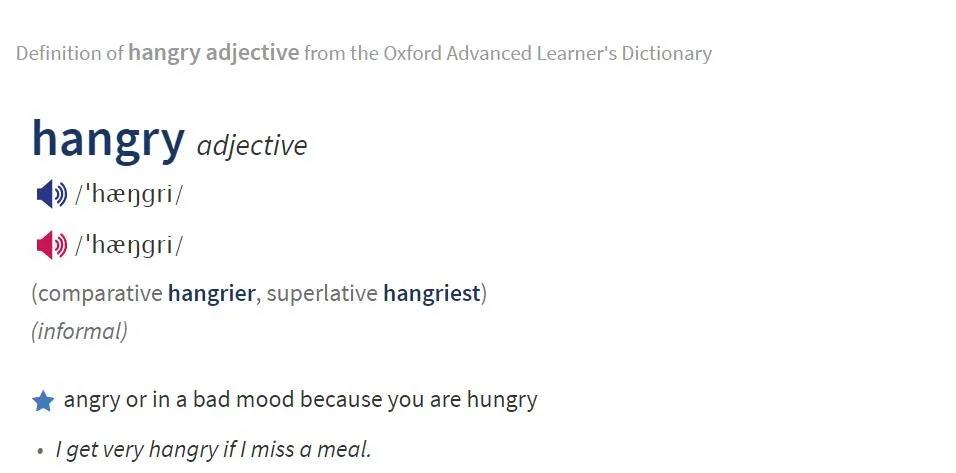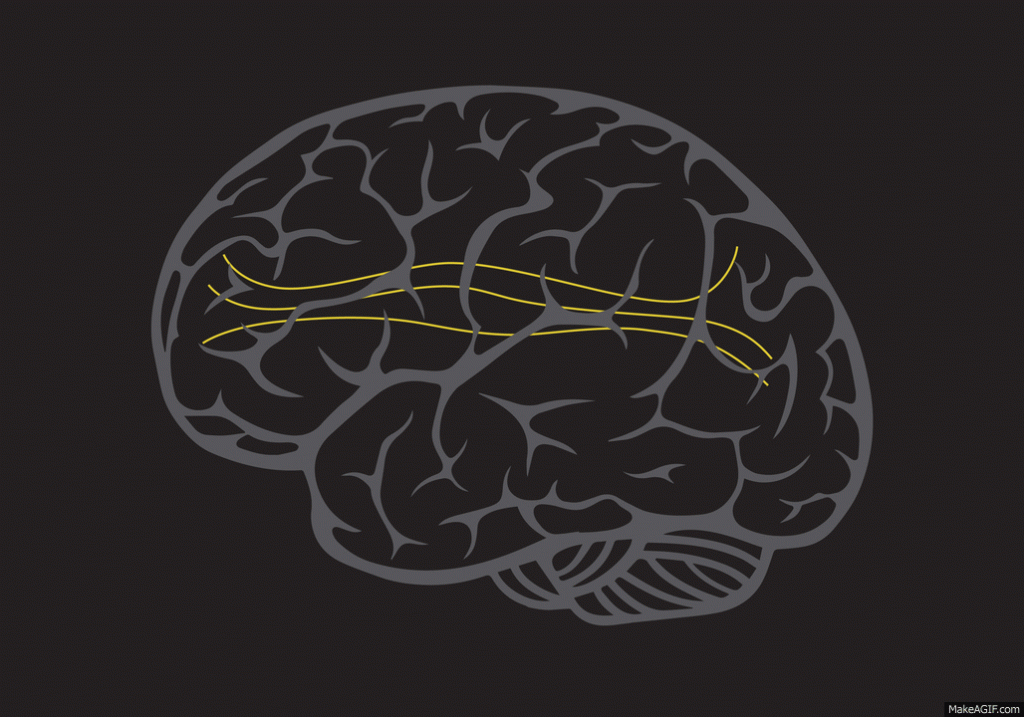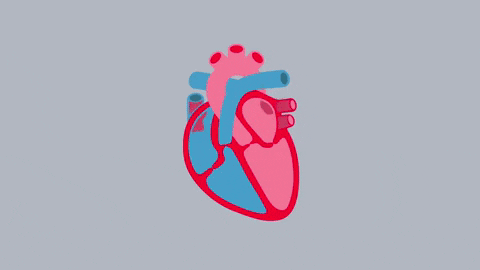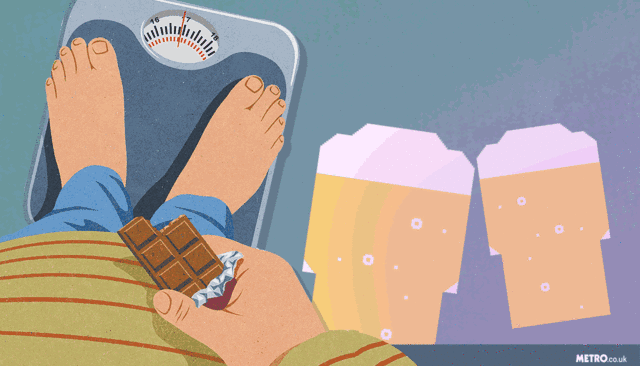
Do you feel this way? When you are hungry, your mood is particularly irritable, and an unknown fire in your heart ignites inexplicably…A little thing seems to be able to quarrel with people.
There is a proper term for this “hungry into anger” mood, which is also included in the Oxford dictionary.
↓↓

hungry+ angry=hangry
Why is it easier to be irritable when you are hungry? Where does this anger come from?
Hungry, it really makes people angry
Proceedings of the National Academy of Sciences published a study in which scientists tested 107 couples for 21 days of blood sugar levels and anger.

Everyone is assigned a voodoo doll and many pins. Every night, these couples will decide how many needles to put on the voodoo doll according to the degree of anger towards their partner during the day.
Researchers will record their hunger levels by measuring the concentration of glucose in their blood.
It turned out that the lower the blood sugar level of the participants, the more needles they put on the voodoo doll, and they were more likely to irritate each other.
Why do people get irritable when they are hungry?
Researchers from Texas A&M University in the United States said that this “hungry into anger” mood is a survival mechanism that helps us survive.
Between meals, as time goes by, the amount of glucose available for the brain to consume will decrease gradually.
Glucose is the primary fuel for the brain’s attention and thinking ability. Once the brain becomes hungry, it will be more difficult to communicate with people than usual, and it will be difficult to do some simple tasks.
“Extremely hungry and angry” is the result of the out-of-control of the body’s control and supervision mechanisms. When we are hungry but have no food to eat, the brain lacks glucose. When the blood sugar level is too low, the brain triggers the release of stress hormones, which can produce frustrating physiological reactions, making people more irritable and difficult to control anger.
A study by the University of Gothenburg in Sweden found that when people are hungry, ghrelin is secreted in the stomach to help people increase appetite and promote digestion. High levels of ghrelin can cause long-term genetic changes in brain circuits, and it has a negative impact on people’s decision-making ability and impulse control.

Excessive hunger destroys muscles and blood sugar
Many people have had this experience. When they are particularly hungry, they can’t take care of food because they are busy with something. They don’t become hungry when they are busy. Everyone calls it “extremely hungry.”
Why is there an over-hungry phenomenon?
Blood sugar is the most important energy guarantee for our life activities. Normal blood sugar will be maintained within a certain range. When blood sugar drops to a certain value, people will feel hungry. If you eat at this time, the carbohydrates in the food will replenish blood sugar in time and eliminate hunger.
If there is no food at this time, the human body will decompose glycogen stored in the liver to promote the blood sugar concentration to rise. However, the storage of liver glycogen is limited, and then gluconeogenesis will occur, which can maintain blood sugar within a reasonable range by breaking down muscle and fat. Blood sugar rises, body energy is replenished, and hunger disappears.
Many people don’t take too much hunger, and even think it’s good to lose weight by the way. In fact, the normalization of this emergency method is not a good thing.
Causes blood sugar to fluctuate too much
If sugar friends are often too hungry, it will easily lead to excessive fluctuations in blood sugar. The “Expert Consensus on the Management of Blood Sugar Fluctuations in Diabetic Patients” issued by the Chinese Medical Association pointed out that blood sugar fluctuations are risk factors for cardiovascular diseases such as coronary heart disease and myocardial infarction, as well as risk factors for diabetic retinopathy.

Easy to cause muscle loss
Being too hungry needs to consume the body’s muscle glycogen and muscle tissue. If things go on like this, muscle tissue will be lost, which in turn will cause a decline in basal metabolism and human immunity.
Causes hypoglycemia
Obvious hunger and refusal to eat may also lead to hypoglycemia. Especially for some older sugar friends with a long course of disease, this kind of hypoglycemia may also be asymptomatic, and severe cases can be life-threatening.
In addition, some people lose weight by “being hungry too much”. Although it can reduce weight to a certain extent, it can easily lead to overeating and rapid weight rebound afterwards. Because dieting will cause muscle tissue loss, the basal metabolic rate will decrease after weight loss, the metabolism will slow down, and fat will accumulate more easily.

In daily life:
Eat regularly and eat three meals a day: A regular diet of three meals a day is the basis for ensuring health, and it can also avoid prolonged non-eating, resulting in insufficient blood sugar supplementation.
Choose foods with a low glycemic index: such as whole grains, fruits and vegetables, which are slow in digestion and absorption, and the sugar in them can slowly and lastingly enter the bloodstream, thereby helping to prolong the feeling of fullness.
Take healthy snacks with you: such as fruits, milk, nuts, etc. When you are hungry and unable to eat in time, you can eat some snacks to replenish energy.
Hungry fast can also be a disease
Some people are obviously full but get hungry after a while. This may be a physical problem:
Hyperthyroidism
Referred to as hyperthyroidism. The thyroid synthesizes and releases too much thyroid hormone, which causes the body’s hypermetabolism and sympathetic nerve excitement, resulting in high excitement, high metabolism, and high consumption.
High excitement often means that the patient is extremely excited but has a temper tantrum; high metabolism means that the patient eats a lot but defecates too much, and always feels hungry; high consumption means that such patients are extremely thin and have a significant weight after one or two months of illness decline.

Abnormal blood sugar control
Many people with diabetes or poor blood sugar control are more prone to hunger than normal people. This is because their insulin secretion is disordered. Excessive insulin secretion will cause blood sugar to drop, resulting in hunger, dizziness, and weakness. , palpitations and other symptoms.
Digestive problems
When food enters the stomach and intestines, if a large amount of gastric acid is secreted, which speeds up the digestion and absorption rate of the stomach and intestines, it will lead to fast hunger. In addition, it may also be due to poor gastrointestinal digestion system, so that after the food enters the gastrointestinal tract, the nutrients in it cannot be absorbed, thus making it unable to supply energy to the body.
Abnormal liver function
When the liver function of the human body is abnormal, it is also prone to hunger. This is because when the blood glucose concentration decreases, the liver cannot make the correct physiological response to break down liver glycogen to maintain normal activity energy. Therefore, continuing to consume less glycogen in the blood is more likely to cause hunger.

In addition, long-term preference for sweets, such as cakes, biscuits, chocolates and other high-fat, high-calorie foods, is also easy to get hungry fast.
Although sweets can bring a short-term joy, but it is easy to quickly form a low blood sugar, thus a vicious circle. Therefore, it is important to moderate sweets, eat more vegetables, fruits, and whole grains, and adjust the diet structure.
Comments